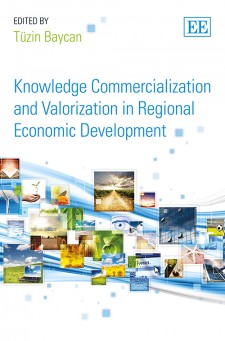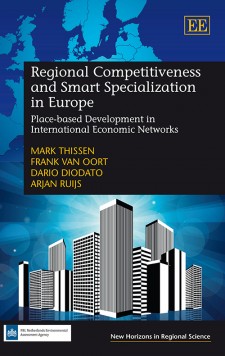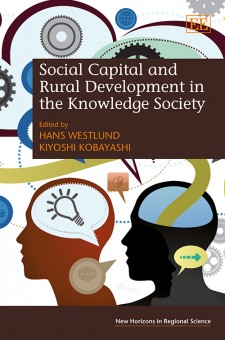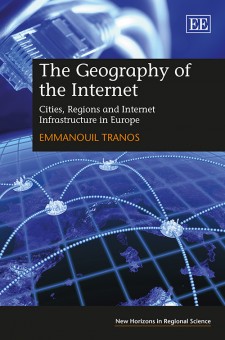Knowledge Commercialization and Valorization in Regional Economic Development
Edited by Tüzin BaycanThe commercialization of academic knowledge is increasingly seen as a potential economic development model, particularly for improving the capabilities and economic performance of regions. This insightful volume investigates the emerging factors in knowledge commercialization from an international perspective and highlights research agendas and challenges to be met across academia, industry and government.
Regional Competitiveness and Smart Specialization in Europe
Place-based Development in International Economic Networks
Regions economically differ from each other – they compete in different products and geographical spaces, exhibit different strengths and weaknesses, and provide different possibilities for growth and development. What fosters growth in one region may hamper it in another. This highly original book presents an accessible methodology for identifying competitors and their particular circumstances in Europe, discusses regional competitiveness from a conceptual perspective and explores both past and future regional development policies in Europe.
Social Capital and Rural Development in the Knowledge Society
Edited by Hans Westlund and Kiyoshi Kobayashi
Social capital is often considered a key factor for local development. This book analyzes the role of social capital for rural areas’ survival and development in the current age of metropolitan growth – an era in which urban is the norm and where rural areas must adapt to this new situation and build innovative urban-rural relations.
The Geography of the Internet
Cities, Regions and Internet Infrastructure in Europe
Author: Emmanouil Tranos
This timely book presents a wide range of quantitative methods, including complex network analysis and econometric modelling, to illustrate how the Internet both follows, and at the same time challenges, more traditional geographies.
Regional Problems and Policies in Latin America
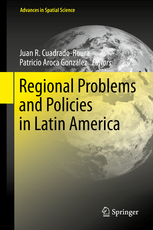
Editors: Cuadrado-Roura, Juan R., Aroca, Patricio (Eds.)
This contributed volume is the first book in English to offer a current and critical vision of regional problems and policies in the countries of Latin America. The book is in three main parts: a general overview of regional processes and trends in Latin America as a whole; country-level coverage of seven individual countries; and comparative analyses of common major problems such as migration, education, labor, poverty, decentralization, exports and foreign direct investments. Written by renowned academics and experts from the region, the book seeks to provide a better understanding of regional challenges and trends, regional disparities that exist in many Latin American countries and the increasing importance of metropolitan areas.
Metropolitan Regions
Knowledge Infrastructures of the Global Economy
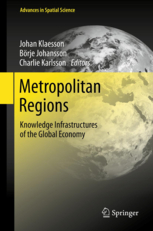
Editors: Klaesson, Johan, Johansson, Borje, Karlsson, Charlie (Eds.)
Metropolitan growth has been dramatic in the past several decades, and today metropolitan regions are recognized as the main driving forces in national growth and development as well as in national and global innovation processes. The purpose of this book is to contribute to a better understanding of how metropolitan regions and their subsystems interact and compete, why they differ in their capacity to nurture innovation and growth, and how metropolitan policies must be designed to secure the region’s long-term vitality. To that end, it presents new contributions on theories of urban growth, institutions and policies of urban change, and case studies of urban growth prepared by international experts.
Geography, Institutions and Regional Economic Performance
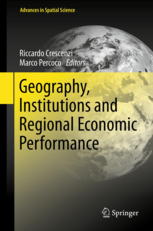
Editors: Crescenzi, Riccardo, Percoco, Marco (Eds.)
The book aims to present “traditional features” of regional science (as geographical concepts and institutions), as well as relatively new topics such as innovation and agglomeration economies. In particular it demonstrates that, contrary to what has been argued by recent economics literature, both geography and institutions (or culture) are relevant for local development. In fact, these phenomena, along with the movement of goods and workers, are among the main reasons for persisting development differentials. These intriguing relationships are at the heart of the analysis presented in this book and form the conceptual basis for a promising institutional approach to economic geography.

